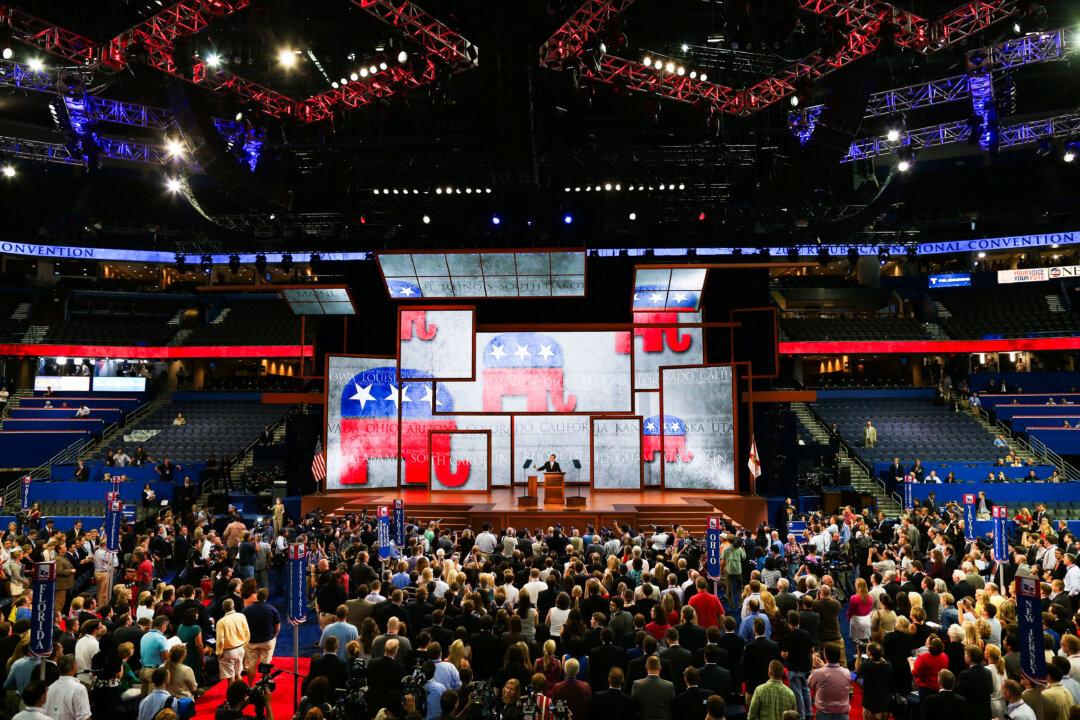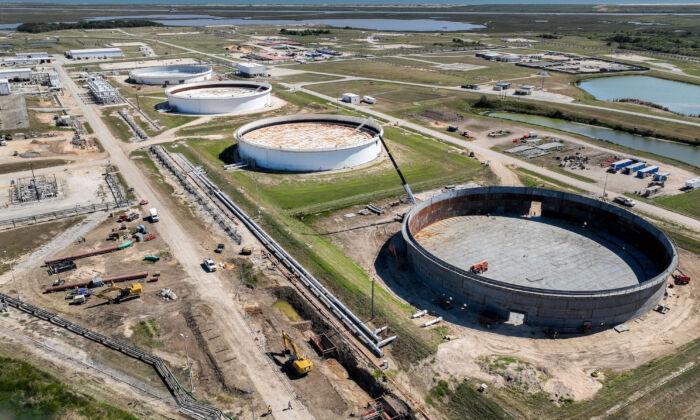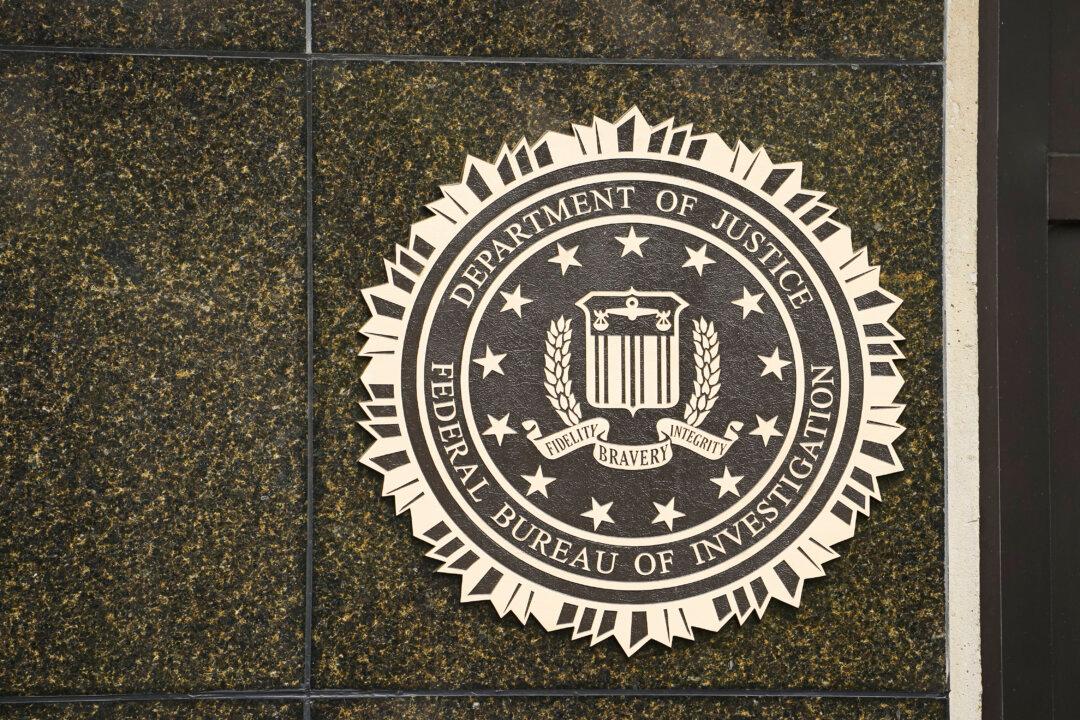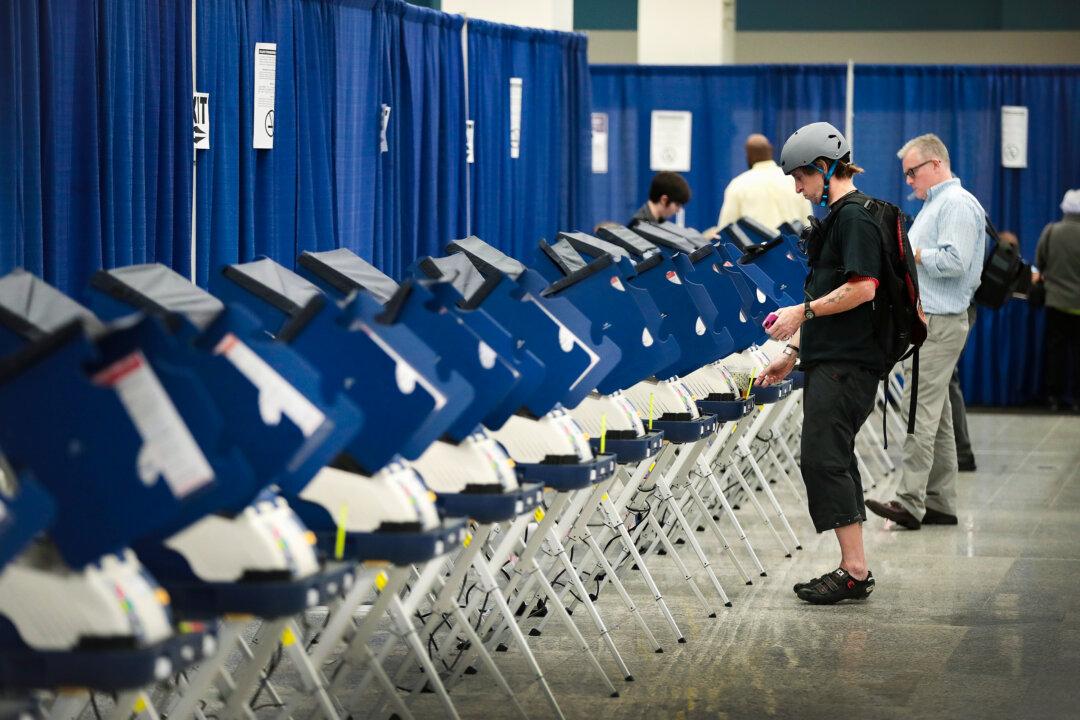The City of Milwaukee has been sued by a coalition of protest groups who say their rights to free speech and assembly are being violated by a special event ordinance that limits their ability to get close enough to the venue of the Republican National Convention (RNC) so that they can be seen and heard by convention attendees as they air their grievances.
The protest group coalition alleges that some provisions of the ordinance violate its members’ First and Fourteenth Amendment rights.
The ordinance also gives Milwaukee officials the power to designate parade routes days or weeks before the convention, which the protest coalition says city officials have still not done. The protest groups’ repeated parade permit applications have also gone unanswered, per the complaint, which seeks to force city officials to grant a permit for a parade location close to the convention.
Milwaukee mayor Cavalier Johnson’s spokesman Jeff Fleming told The Epoch Times in an emailed statement that city officials met with the litigants and held discussions in a bid to resolve the matter hours before the lawsuit was filed.
“The City of Milwaukee is fully prepared to answer the court filings,” Mr. Fleming said. “We have consistently operated in good faith with all the different groups and individuals who are concerned about the demonstration plans.”
He added that the city “takes seriously its responsibility to provide an opportunity for people to express their opinions” while also being focused on ensuring the safety of convention participants.
Todd Steggerda, counsel for the RNC, sent a letter to the U.S. Secret Service in April, asking officials to keep protesters farther back from the convention venue than had been originally planned because the existing plan created “an elevated and untenable safety risk to the attending public.”
More Details
Significant protests are expected at the July 15-18 convention, where former President Donald Trump is expected to become the party’s official 2024 nominee.The protest coalition said in its complaint that it filed its first of three parade permit applications on April 12, 2023, for a route that “assures that marchers can be seen and heard by RNC attendees.”
A map indicates that the proposed route would pass in the vicinity of Fiserv Forum, where much of the RNC’s activities will take place.
The city replied by telling the protest coalition that their permit application was filed too early, so they filed other permit applications on Sept. 21, 2023, and Jan. 18, 2024. The coalition alleges that the city ignored both subsequent applications.
Then, on March 19, 2024, the city adopted the special event ordinance, which included the establishment of a 90-square-block security footprint, an area with limited pedestrian and vehicular access.
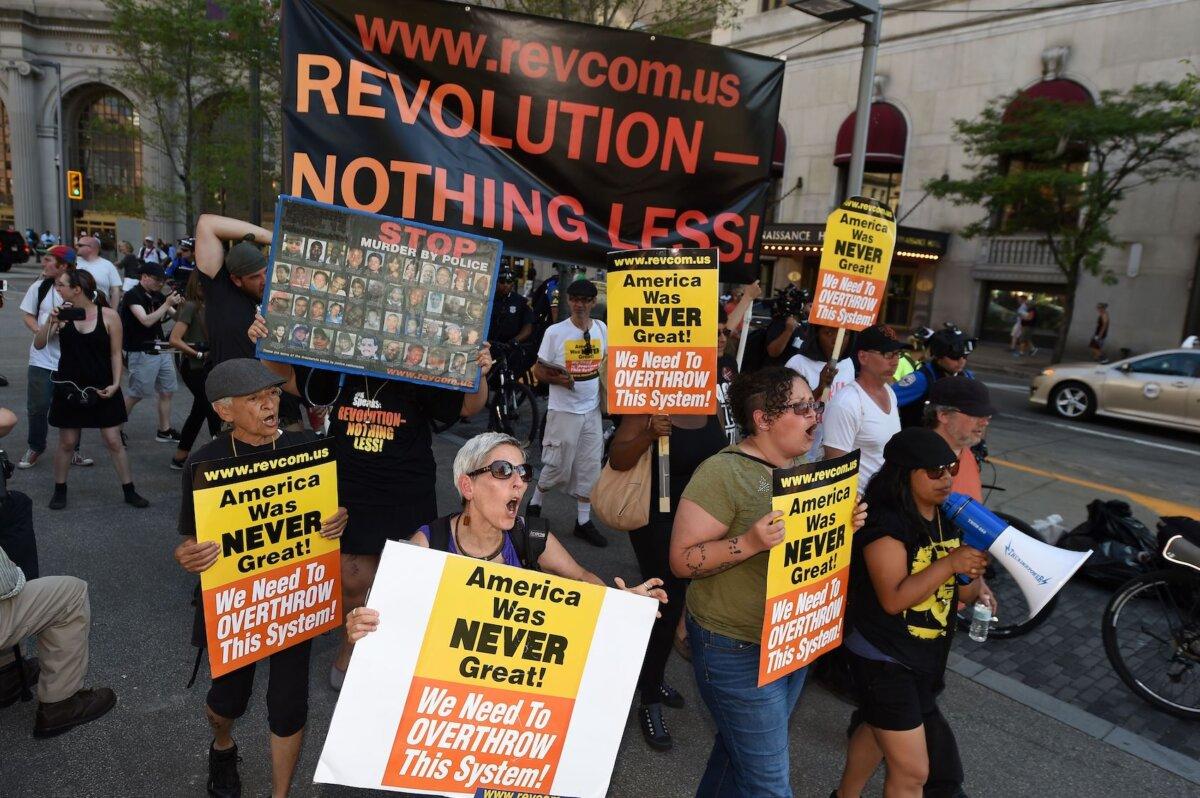
The ordinance requires that protesters apply for a special permit to be able to protest within the security footprint and, if the permit is granted, it only allows them to march along a specified route.
It also limits the type of items that can be carried into the zone and creates an additional area secured by tall fencing where only credentialed individuals can enter, along with just one “official speakers’ platform” with sound equipment provided and controlled by the city.
While the ordinance allows city officials to impose “restrictions designed to protect public safety, persons, and property,” it also acknowledges protesters’ right to demonstrate and promises to let assemblies and parades take place “near the Convention so they may be seen and heard.”
The groups argue, however, that the ordinance is “unconstitutionally vague” and gives city officials too much leeway to impose restrictions that limit demonstrators’ ability to be seen and heard by RNC attendees, in violation of the First Amendment and the Due Process Clause of the Fourteenth Amendment of the U.S. Constitution.
“The Coalition brings this suit to vindicate its rights to engage in First Amendment expression activity in the traditional public forum of the streets in a manner where it can be seen and heard by attendees of the Convention,” their complaint reads.
The coalition wants the court to declare that Milwaukee unconstitutionally failed to grant the group’s application for a parade permit, and it asks that the ordinance be declared unconstitutional.
The protesters also want the court to force the city to grant a parade permit in a location where they can be seen and heard by RNC attendees.
Protesters have raised similar concerns and filed lawsuits challenging restrictions around the Democratic National Convention in Chicago in August.
